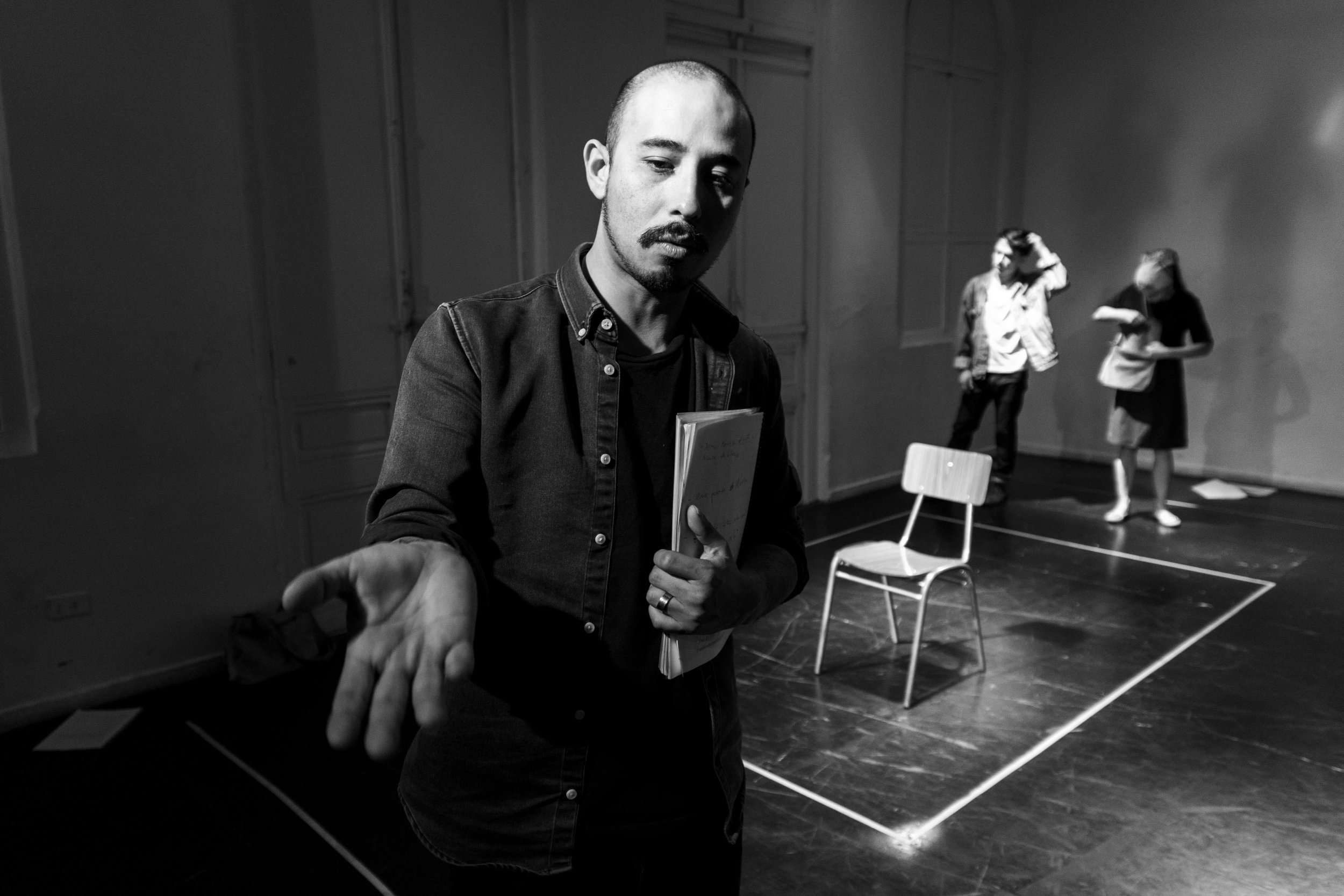BOSCO ISRAEL CAYO ÁLVAREZ
Bosco Israel Cayo Álvarez trained in acting, directing, and playwriting at the Pontificia Universidad Católica de Chile and in psychology at the Universidad de La Serena. He is a member of the theater companies Compañía Limitada, Teatro Sin Dominio, and Teatro la Mala Clase, and has taught in drama schools throughout Chile. His play Negra, la enfermera del General (Negra, the General’s Nurse) was selected by the Royal Court Theatre, London, as part of its 2013 New Plays from Chile season. His other works for the stage include Limítrofe (Herdswoman of the Sun), Leftraru, La dama de los Andes (The Lady of the Andes, winner of the 2017 Chilean National Council for Arts and Cultures literary award for best play), El Dylan, Plan Vivienda 2015-2045 (Re-Housing Plan 2015-2045), Los despertares de Marín (The Awakenings of Gladys Marín, 2019), José Desierto (winner of the 2020 Chilean Ministry of Cultures, Arts and Heritage playwriting award), Evangelista (2020), and La Belleza de Judith (The Beauty of Judith, 2021).
Sonia López Baena: In your works, reality and fiction are in permanent dialogue. How does the particularity of this dialogue emerge?
Bosco Cayo: The first thing was to understand that reality is not something objective, but rather a series of versions. We know the official one, which seems to be true, but what is the version that needs to be told instead? The approach to the object can start from a news item, a topic, a speech, a video on YouTube, observation in the street, or a sensation. Then comes the game of inventing another version, another possibility that compels us to portray the truth.
Sonia López Baena: In your texts, the relationship of the characters with institutions is very present. Where does this interest come from?
Bosco Cayo: I believe that we are in a very important historical moment. Apparently, the idea of the institution or the government that seeks the protection and well-being of the subject is in deep crisis. This is not an original idea; it is a matter of watching the news and reading the newspaper. The country is dissatisfied with its representatives. There is no longer trust. There is no representation.
I think my characters are located in the thick of that fight. They are in the middle. Never lower, and never higher. In that indecipherable place that they call “middle class,” that abysmal space that seems to be safe and neutral but is more and more exhausted by helplessness and inequality.


